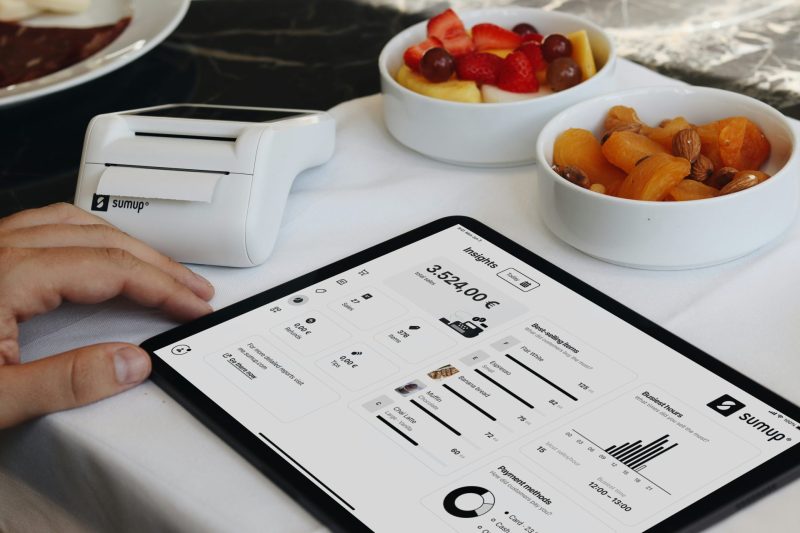Your Ultimate Guide to Hotel Cost Control
In today’s competitive hospitality industry, effective cost control is essential to long-term success. This ultimate guide breaks down everything hoteliers need to know; from labour management and procurement strategies to smart purchasing and streamlined operations. Read on to uncover practical tips that can help you optimise expenses, boost efficiency, and take full control of your hotel’s finances.
What Is Hotel Cost Control?
Cost control is one of the most important parts of running a profitable hotel.
At its core, it involves the ongoing process of managing, analysing, and optimising expenses to ensure every dollar spent contributes to revenue and guest satisfaction.
In a hotel context, cost control touches every department, from front office to housekeeping, food and beverage, maintenance, and administration. It involves regularly reviewing how money is being spent, identifying areas of waste or inefficiency, and implementing smarter ways to use resources.
For example, this could mean:
-
Adjusting staff rosters based on occupancy patterns.
-
Negotiating better supplier contracts or buying in bulk.
-
Monitoring energy and water usage to reduce utility costs.
-
Tracking food and beverage inventory to minimise waste.
But the goal isn’t to cut corners or compromise guest experience. On the contrary, hotel cost control is about creating a more efficient operation where resources are used effectively, costs are predictable, and profitability is sustainable.
Done right, it gives operators the clarity to see what’s driving results, and the confidence to turn good operations into smart strategy.
Don’t Just Manage Costs — Master Them
Ready to gain clarity and control of your costs in a way that your general manager cant?
Contact Scott, our Director of Development, to find out how 1834 Hotels can help you.
Email: [email protected]

Why Is Hotel Cost Control So Important?
While the importance of cost control might already seem clear, it’s worth remembering just how much it can influence every part of your hotel business.
Profitability
It’s no surprise to hear that cost control protects and improves profitability. By actively managing expenses and optimising resources, hotels can ensure revenue consistently exceeds costs, creating a healthier, more resilient bottom line.
Financial Sustainability
Strong cost control supports long-term financial stability. When expenses are closely monitored, hotels can adapt to changing market conditions, absorb unexpected challenges, and maintain steady performance throughout the year.
Competitive Advantage
Hotels with well-managed costs can offer more flexible pricing without compromising on quality. That balance, great value and great service, gives your property a clear edge in competitive markets.
Operational & Environmental Sustainability
Efficient use of resources like energy, water, and supplies isn’t just good for the bottom line. Smart cost control naturally encourages sustainable operations by reducing waste and promoting efficiency across departments.
Staff Retention
When costs are managed effectively, hotels can reinvest savings where it matters; in their people. Competitive wages, training opportunities, and workplace improvements all contribute to higher satisfaction and lower turnover.
Budgeting & Planning
Accurate cost control gives hotel leaders a clear financial picture. With precise data on spending, management can create more accurate budgets, forecast with confidence, and make informed, strategic decisions for the future.
The Types of Hotel Costs and Expenses
If you want to figure out where your hotel might be overspending, start by really getting to know your costs; what they are, how they behave, and where they actually add value. Once you’ve got that clarity, it becomes much easier to see patterns, analyse your spending, and shape a strategy that genuinely reduces costs rather than just cutting corners.
From there, it helps to understand that a hotel’s operating expenses generally fall into two main types…
Fixed Costs
These costs generally remain the same regardless of how busy the property is. Having said this, they may change periodically.
Let’s take rent for example. A hotel pays the same rent and property taxes whether it’s running at 30% occupancy or 100% occupancy. Identifying these costs is helpful for calculations, but often can’t be changed too much with implementing significant changes to your business.
Examples of fixed costs in hotels include:
- Payroll-related expenses
- Rent or mortgage
- Property taxes
- Insurance
- Fixed monthly bills like cable and internet
- Franchise or management fees (if applicable)
- Technology (E.g., fixed monthly subscription fees)
Variable Costs
On the other hand, variable costs can fluctuate from day to day. They are often correlated with occupancy levels.
As a result, variable costs are harder to predict but easier to control, making them prime targets for cost-trimming. Take for example cleaning costs. The costs of hourly staff and cleaning supplies will be higher when a hotel is running at 100% occupancy than at 30% occupancy.
Examples of variable costs in hotels include:
- Hourly labour
- Utilities (like gas, electricity, and water)
- Marketing and distribution
- Housekeeping supplies
- Maintenance costs
- Food and beverage inventory
- Credit card commissions and other payment processing fees
- Technology (if fees are charged on a per-usage basis)

How to Analyse Your Costs at a Hotel
With your list of costs now divided up, you’ll be able to start identifying where you might have flexibility to make changes or cuts.
Follow a structured, data-driven approach and you’ll be well on your way to a more efficient and profitable business model. Here’s a clear framework to guide your analysis:
1. Identify and Categorise Expenses
Start by mapping out all expenses across your hotel operations. Categorise them into fixed and variable costs. From there, break them down further by department for a clearer picture of spending patterns.
2. Establish Benchmarks
Use industry benchmarks, historical data, or internal targets to set realistic performance standards. Compare your actual costs against these figures to identify any inefficiencies or areas that are performing above or below expectations.
3. Analyse Spending Patterns
Look for anomalies or trends in your data. Identify high-cost areas, seasonal fluctuations, or departments that consistently exceed budgets. This deeper analysis will help pinpoint where operational improvements or supplier negotiations can make the biggest impact.
4. Implement Cost-Saving Measures
Based on your findings, introduce cost-saving initiatives that reduce expenses without compromising guest experience. This could include adjusting staffing levels, renegotiating supplier contracts, introducing energy-efficient systems, or implementing waste reduction programs.
Learn how 1834 Hotels can help you cut costs here.
5. Monitor, Measure, and Adjust
Cost control is not a one-time exercise, it’s an ongoing process. Continuously track results, monitor performance against benchmarks, and adjust strategies as needed. Use reporting tools or management software to maintain visibility and ensure long-term success.
Read more about how 1834 Hotels monitors costs across its network.

Optimising Hotel Operating Costs
With the time consuming analysis processes out of the way, you’ve now got an overview of where your property stands. The next stage of your cost cutting mission is to start making some changes.
1. Review Your Supplier Partnerships
Reviewing where and how you buy can uncover significant savings opportunities. Negotiating with suppliers remains one of the most effective ways to optimise costs and strengthen profitability. Many operators overlook the potential to leverage their buying power – but open, confident communication can have a real impact on your bottom line.
Assess areas where you’re purchasing in volume and explore opportunities to secure better pricing, improved terms, or value-added inclusions. Consider bulk purchasing, long-term agreements, or consolidating orders across categories to maximise efficiencies. Maintaining strong supplier relationships and conducting regular reviews ensures continued savings without compromising quality or service standards.
At 1834 Hotels, we leverage the collective buying power of our network through established national supplier agreements. This ensures our properties benefit from preferred pricing and trusted partnerships across key areas including food and beverage, linen, maintenance, and marketing services.
Speak to us about our group buying power.
2. Keep Your Staff Happy
Your people are one of your biggest assets, and a key part of cost control. High turnover leads to extra training, recruitment costs, and lower productivity, while a happy team creates consistency and efficiency.
Be proactive: set clear expectations, offer ongoing feedback, provide opportunities for growth, and foster a positive work culture. Investing in your staff now will save both time and money later.
3. Fix Things Before They Break
Preventive maintenance is a quiet hero of cost control. Waiting until something fails almost always costs more than fixing it early.
Regular inspections, cleaning schedules, and timely servicing can extend the life of your equipment, reduce downtime, and prevent major breakdowns, keeping your operations smooth and your repair bills smaller.
4. Review Your Marketing Spend
Marketing is essential, but it can also be expensive if not managed strategically. Regularly review where your budget goes and whether it’s still delivering results.
Balance short-term tactics, like paid ads, with long-term investments such as SEO and email marketing. Track performance closely so you can focus on what actually works and cut what doesn’t.
5. Optimise Staff Scheduling
Efficient scheduling is one of the most practical ways to control labour costs. Align rosters with occupancy patterns, forecasted bookings, and event seasons.
Encourage flexibility, for example, adjusting shifts when the hotel is quieter than expected, but always ensure you’re maintaining service quality. Smart scheduling is about balance, not cuts.
6. Buy in Bulk (Strategically)
Bulk buying can significantly reduce purchasing costs, especially for consumables and essentials. You’ll benefit from volume discounts, fewer deliveries, and less last-minute purchasing.
Just be mindful of storage space, expiry dates, and cash flow. Strategic bulk buying should save money, not create waste.
7. Track and Review Regularly
Cost control isn’t a one-time project; it’s an ongoing process. Review key expenses regularly, compare results month to month, and adjust your strategies as needed.
When you measure consistently, you’ll quickly see which efforts deliver the biggest savings, and where there’s room to improve.
1834 implements a number of of systems which help you maintain an overview of your costs. Meanwhile, our finance systems and reporting structures give owners complete visibility of performance.
Ask us how we can help you gain clarity and control over your business costs.
Enhance Profitability and Operational Control With 1834 Hotels
When you work with 1834 Hotels, your costs are kept low using precision, technology and the power of group buying.
Our custom-built business intelligence platform pulls live data from every system; PMS, point-of-sale, and more, to deliver real-time insights into revenue and expenses. The result? No manual errors, no wasted time, just a clear daily snapshot of performance across every department.
Beyond data, our approach combines real-time wage tracking, labour-to-revenue monitoring, and strict expense management systems to protect margins and improve profitability.
Plus, through our national network, properties also benefit from group buying power, giving them access to preferred supplier agreements and reduced pricing on food, beverage, linen, maintenance, and marketing.
Ready to gain clarity and control?
Get in touch with Scott, our Director of Development.
Email: [email protected]



